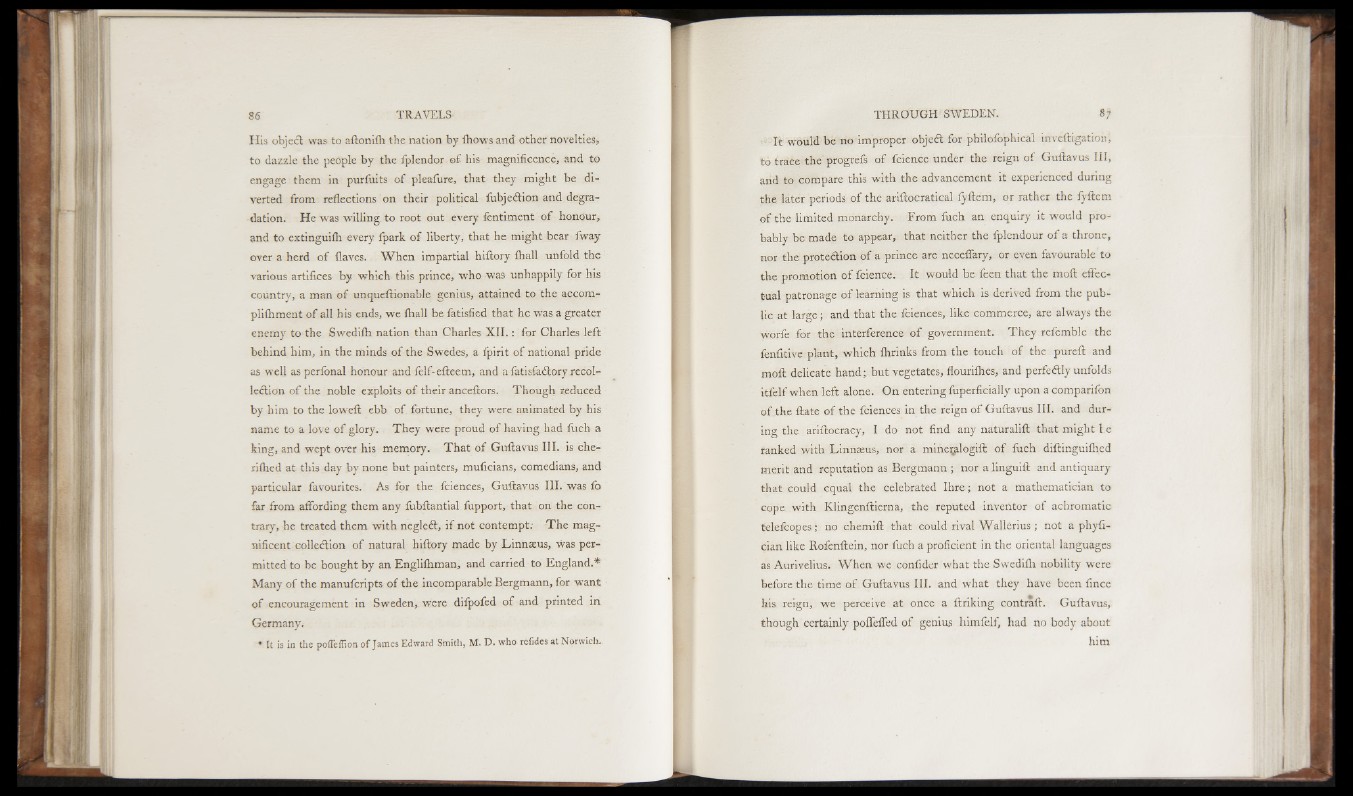
His objedl was to ailoniih the nation by ihows and other novelties,
to dazzle the people by the iplendor o f his magnificence, and to
engage them in purfuits o f pleafure, that they might be diverted
from reflections on their political fubjeftion and degradation.
He was willing to root out every fentiment o f honour,
and to extinguiih every lpark o f liberty, that he might bear fway
over a herd o f flaves. When impartial hiilory fhall unfold the
various artifices by which this prince, who was unhappily for his
country, a man o f unqueilionable genius, attained to the accom-
pliihment o f all his ends, we fhall be fatisfied that he was a greater
enemy to the Swediih nation than Charles X I I . : for Charles left
behind him, in the minds o f the Swedes, a ipirit o f national pride
as well as peribnal honour and felf-efteem, and a fatisfadlory recol-
leftion o f the noble exploits o f their anceftors. Though reduced
by him to the loweit ebb o f fortune, they were animated by his
name to a love o f glory. They were proud o f having had fuch a
king, and wept over his memory. Tha t o f Guilavus III. is che-
riihed at this day by none but painters, muficians, comedians, and
particular favourites. As for the fciences, Guilavus III. was io
far from affording them any fubilantial iupport, that on the contrary,
he treated them with negledt, i f not contempt; T he magnificent
colleilion o f natural hiilory made by Linnaeus, was permitted
to be bought by an Engliihman, and carried to England.*
Many o f the manufcripts of the incomparable Bergmann, for want
o f encouragement in Sweden, were difpofed o f and printed in
Germany.
* It is in the poflefiion of James Edward Smith, M. D. who refides at Norwich.
I It would be no improper objeit for philofophical inveiligation,
to trace the progrefs o f fcience under the reign of Guilavus HI,
and to compare this with the advancement it experienced during
the later periods o f the ariilocratical fyilem, or rather the iyilern
o f the limited monarchy. From fuch an enquiry it would probably
be made to appear, that neither the fplendour o f a throne,
nor the protection o f a prince are necefiary, or even favourable to
the promotion o f fcience. It would be feen that the moil effectual
patronage o f learning is that which is derived from the public
at large; and that the fciences, like commerce, are always the
worfe for the interference o f government. They refemble the
fenfitive plant, which fhrinks from the touch o f the purefl and
moil delicate hand; but vegetates, flourifhes, and perfeilly unfolds
itfelf when left alone. On entering fuperficially upon a comparifon
o f the Hate o f the fciences in the reign o f Guilavus III. and during
the ariilocracy, I do not find any naturaliil that might t e
ranked with Linnaeus, nor a mine^logiil o f fuch diilinguiihed
merit and reputation as Bergmann ; nor a linguiil and antiquary
that could equal the celebrated Ihre; not a mathematician to
cope with Klingenilierna, the reputed inventor o f achromatic
teleicopesf ; no chemiit that could rival Wallerius ; not a phyfi-
cian like Rofenilein, nor iuch a proficient in the oriental languages
as Aurivelius. When we confider what the Swediih nobility were
before the time o f Guilavus III. and what they have been fince
his reign, we perceive at once a itriking contrail. Guilavus,
though certainly poifeifed o f genius himfelf, had no body about
him